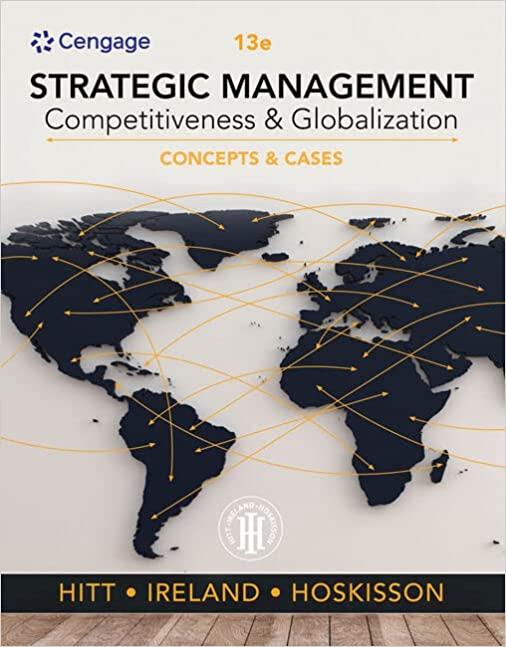The Fdration Internationale de Football Association (FIFA) was founded in Paris in 1904 and was initially comprised
Question:
The Fédération Internationale de Football Association (FIFA) was founded in Paris in 1904 and was initially comprised of only European nations. By World War II, FIFA had added a few South American members. Newly independent states in Africa, Asia, and the Caribbean joined later. However, it continued to be governed “as though it was an exclusive European club”—until 1974 when João Havelange, a Brazilian,
won the election as FIFA’s president. Havelange was able to transform the organization and expand the World Cup competition to teams from nations outside Europe and South America and made the tournament a major money-making enterprise. With the amount of exposure and money involved, companies desired sponsorship rights because of the advertising potential. Adidas AG and Coca-Cola were original sponsors.
Havelange also oversaw significant increases in revenue from television rights. In the process, Havelange was alleged to have participated in much corruption and eventually was suspected of amassing $50 million in bribes. Havelange facilitated the election of Sepp Blatter who became FIFA president in 1998 and continued to follow Havelange’s approach to politics. After FIFA became a worldwide organization, especially in developing countries in Latin America, Africa, and the Caribbean, more allegations of corruption surfaced. One analyst suggested that “FIFA could not have developed soccer in poorer countries without corrupt practices.” Of course, there has also been corruption in more developed countries, such as the United Kingdom and the United States, although normally not through blatant bribery. On May 27, 2015, the United States Department of Justice and the FBI announced a long list of indictments, and simultaneous arrests of FIFA officials were made at the Zurich FIFA meetings in Switzerland. Several days after the indictment, though he was not officially indicted, Blatter stepped down from his long presidency.
Questions
1. How does the FIFA scandal represent a form of political risk for companies operating in foreign countries?
2. What are the benefits to companies such as Nike and Coca- Cola acting as sponsors of soccer organizations in foreign countries?
3. What international strategy is being used by the major companies holding these sponsorships? Please explain.
4. Given the process described for gaining sponsorships (e.g., through sports marketing agencies), should Nike and other major companies realize that bribes and other corrupt practices were taking place?
5. How can companies handle corrupt practices in foreign practices? Can they find ways to compete there without engaging in these practices? Please explain.
Step by Step Answer:

Strategic Management Concepts And Cases Competitiveness And Globalization
ISBN: 9780357033838
13th Edition
Authors: Michael A. Hitt, R. Duane Ireland, Robert E. Hoskisson





